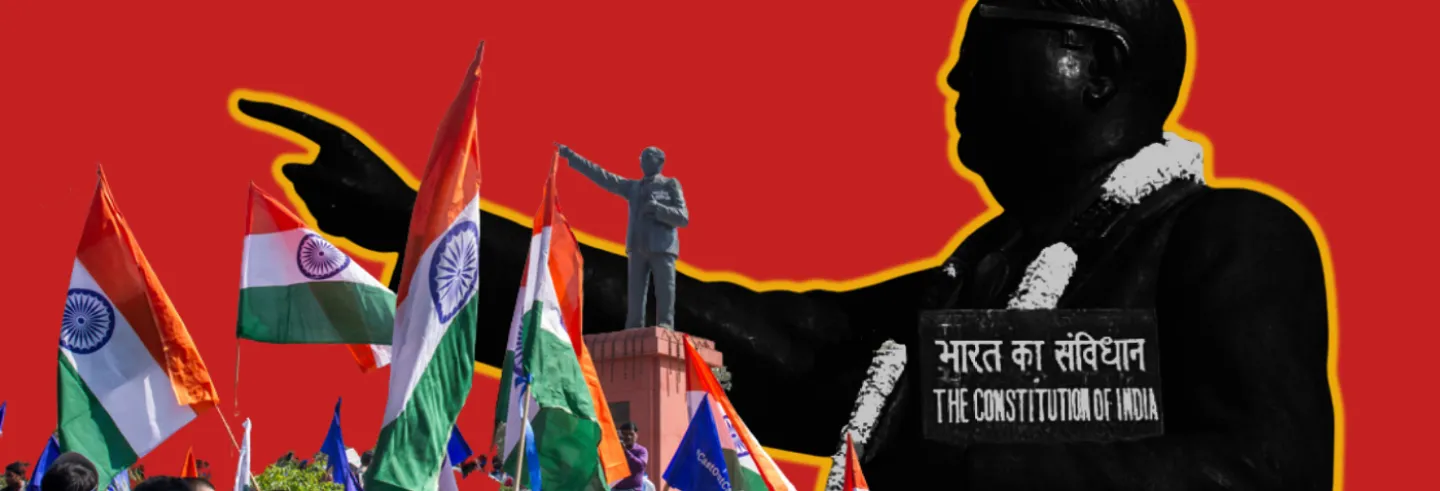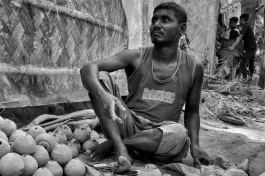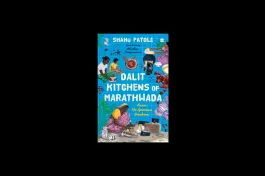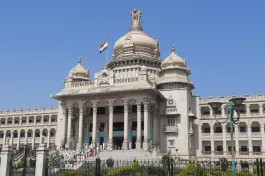In Brahminical Hindu society, caste is one of the dominant factors that constitute identity and determines a person's material and social destiny. It was expected that modern constitutional democracy would eventually break the monster of caste. The social quality of democratic life can be measured by the ethical standards of individual liberty, equality, and public morals, by which every citizen is respected without discrimination. In other words, this is a normative that one should expect in the 76-year-old democracy of India.
Perhaps India is not yet a mature democracy to expect such high moral civic virtue. Civic and human rights violations against Dalits have been unending. Violence against them has been normalised and naturalised to such an extent that it does not affect the conscience of casteist Hindu society.
Dalit democracy
According to the Constitution, the practice of untouchability is an offence. But the Constitution does not stop the cultural and customary practice of caste. It does not acknowledge that the practice of caste is a crime, although caste and fundamental rights are inherently contradictory.
Dalits are abused, discriminated against, beaten, tortured, killed, because they claim democratic principles as their way of life.
The persistence of caste perpetuates violence against Dalits and subordinated castes and violates their natural human rights. Dalits aspire to practice the ethics of democracy as their way of life. Yet, when they live a democratic life and celebrate the Constitution as their social public ethics, the consequence is the end of their lives. Dalits are abused, discriminated against, beaten, tortured, killed; because they claim democratic principles as their way of life.
A list of a few incidents where Dalits were killed in recent times illustrates this. In Uttar Pradesh, a Dalit man was beaten to death by an OBC Yadav caste person for asking for his wages. In Rajasthan, a Dalit student was beaten to death in school for drinking water from an upper-caste teacher’s water pot. A 15-year-old Dalit boy bathing in a public pond in Odisha was killed by dominant and upper-caste Hindus. When a young Dalit boy celebrated Ambedkar Jayanti in Maharashtra, he was killed by dominant caste Hindus. A Dalit man who loved an upper-caste girl was killed in Uttarakhand. A young Dalit boy wearing good clothes and sunglasses was thrashed by upper castes in Gujrat.
There is a façade of democracy, in which caste is appropriated as a political tool to strengthen caste hierarchy.
Philosophically, ‘Dalit’ and ‘democracy’ would be synonymous. In the last 200 years, caste annihilators-thinkers activists like Jotirao and Savitribai Phule, Periyar, and Ambedkar, as well as several other leaders and communities who have been revolting against the caste system have one dream to achieve: to make India democratic in its true spirit.
Democracy and caste are antithetical to each other. But there is a façade of democracy, in which caste is appropriated as a political tool to strengthen caste hierarchy and Brahmanical power domination.
Caste assertion
Caste is central to Indian politics, starting from the distribution of seats to positions and portfolios in the political party. Everything has a caste calculation, and the differences lie in the political ideology that the party upholds.
Political scientists have described the lower and middle castes’ challenge to the upper castes' political hegemony in states such as Uttar Pradesh, Bihar, and Tamil Nadu as a ‘silent revolution’. Yet, even as parties developed the politics of social justice, their critique of caste remained inadequate.
Caste violence against Dalits is derived from Brahminism and is seen in all political parties across time and space.
North Indian parties like Samajwadi Party, Rashtriya Janata Dal and Janata Dal (United) assert the backward identity of their predominantly Other Backward Caste (OBC) followers, without critiquing the caste system and their own position in society. In Tamil Nadu, the Dravida Munnetra Kazhahgam and All India Anna Dravida Munnetra Kazhagam carry the lineage of Periyar in critiquing Brahminism but fail to question their OBC supporters' atrocities against Dalits. In the states these parties are active in, most OBCs are dominant middle castes. Their display of superiority over Dalits upholds their position in the caste system.
Subordinated castes’ political assertion through their identity is used as a weapon to fight upper-caste hegemony. But their principle of social justice discriminates and kills Dalits and neglects an emancipatory normative. In other words, this politics not only strengthens the caste hierarchy but also maintains the social order in perpetuating violence against Dalits.
Caste violence against Dalits is derived from Brahminism and is seen in all political parties across time and space. It does not matter which political parties come to power. Democracy and caste are antithetical; yet politics does not offer a critique of caste.
Death by caste
Brahminical society has internalised caste as the core of its social fabric and celebrates this as a cultural way of life with pride and impunity. Arguably, the death of a Dalit does not matter to caste society. There are two ways of understanding this.
Caste is a system of law entirely based on penalties to the extent of death.
First, the institution of caste has never been understood as a criminal act. Instead, caste is regarded as a cultural practice. Second, caste is a system of law entirely based on penalties to the extent of death. Caste encloses the community and lower castes, particularly Dalits, who transgress its boundaries are to be punished through social shunning and violence.
As Ambedkar writes in his Annihilation of Caste, “Penal sanction is necessary for the maintenance of Chaturvarnya. Not only penal sanction is necessary, but penalty of death is necessary. That is why Rama did not inflict on Shambuka a lesser punishment. That is why Manu-Smriti prescribes such heavy sentences as cutting off the tongue or pouring of molten lead in the ears of the Shudra, who recites or hears the Veda”.
The method of penalties for each caste works at different levels. For example, sexuality is controlled by the male, and if anyone breaks the law of patriarchy (which is caste), the consequence is death, which we witness in inter-caste marriages. Discrimination, torture, and abuse against Dalits is an everyday vocabulary that caste Hindu society speaks at a notional level. Yet no definition of caste captures the death of Dalits by caste.
In contemporary India, a manual scavenger dies every week. The Dalit activist Bezwada Wilson has been campaigning against manual scavenging with the slogan ‘STOP KILLING US’. What do those words signify? To understand, let us question further. How does a manual scavenger die in a septic tank? Who kills a manual scavenger? Who wants to be a manual scavenger? Who would like to be killed unnaturally? Is manual scavenging a choice, or an imposition through the caste system?
Whether it is the indirect death of a manual scavenger, or murderous violence against Dalits in urban and rural India, whether a Dalit woman is raped and murdered, or whether a Dalit student is forced to die by suicide in higher educational institutions – all are deaths by caste.
The death of a Dalit needs to be understood through casteist codes that define who does what and why.
The corporeal Dalit body exists as a layer of denial and deep repulsion for Brahmanical caste Hindu society. They are disregarded as free and equal human beings. Dalits who dare to assert their equal fundamental rights are considered offensive by dominant and upper castes.
In a chapter titled ‘Why Lawlessness is Lawful?’, part of Untouchables or The Children of India's Ghetto, Ambedkar cites the Manusmriti “If one who (being a member of the Chandala or some other low caste) must not be touched, intentionally defiles by his touch one who (as a member of a twice-born caste) may be touched (by other twice-born persons only) he shall be put to death.” The death of a Dalit needs to be understood through casteist codes that define who does what and why.
The breaching of such caste rules has levels of consequences of discrimination, exclusion, denial, violence, and death. In this context, one can read the Black Abolitionists, who questioned democracy in America, with its democratic promise on the one hand and laws that denied constitutional democratic rights on the other. Similar to the Jim Crow laws of the US, the laws of Manu regulate social power that militates against constitutional democracy in India.
The existential problems of Dalit life are freedom and equality, which are the essence of democracy. This is an idea that conflicts with the inheritance of caste inequality.
"The death of a Dalit is the death of democracy," sings Sheetal Sathe. Yet these deaths maintain the order of caste impunity and pride. The Indian Constitution is a modern law, but the rule of caste is social and cultural and inherited by tradition. Constitutional provisions and fundamental rights exist against caste atrocities; hence, rights and liberty are protected through the Constitution. Against them are social laws; customary and habitual, they constitute a living embodiment of the way and everyday activity of Hindu lives. Therefore, violence and discrimination against Dalits is core to Hindu conduct. Hinduism cannot exist without caste; it endures to discriminate, as experienced by Dalits.
The Dalit idea of democracy is not something that is given in Brahminical society. An imposed identity reminds Dalits that they have no freedom or equality. The existential problems of Dalit lives are the essence of democracy. This is an idea that conflicts with the inheritance of caste inequality. It is to be fought against the immanence of Brahminism that existed in the lives and blood of the Hindu psyche. This fight is part of the global abolitionist movement to make democracy substantive.
Dalits might be, rightly, sceptical about the formal notion of democracy. Yet they are the inheritors of radical democracy in India. Human life has to be redefined by learning from the democratic struggle for human rights that could counter unnatural dehumanisation and death.
Jadumani Mahanand teaches at OP Jindal Global University, Sonipat. He researches political philosophy, Ambedkar, and recognition.









